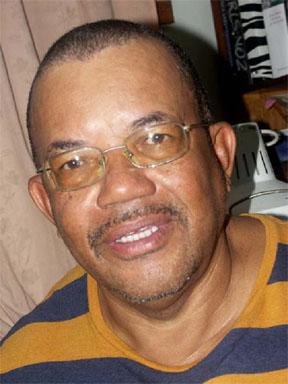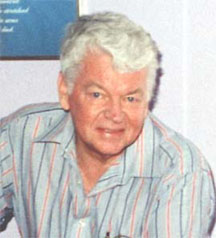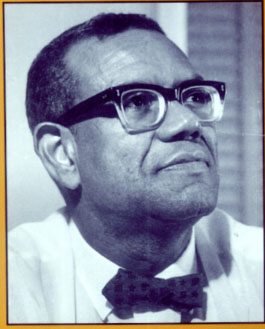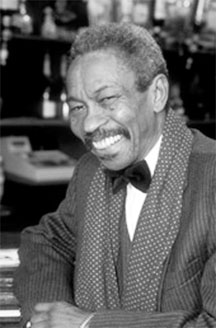By Barrington Braithwaite
The issue of publishing and the national ethos has never been treated with deserving seriousness. Guyana has never had a publishing establishment outside of newspapers though there were publications that persisted on account of the persistence of individuals. The Guiana Times News Magazine of the 1950s, edited and by Percy Armstrong and, subsequently, Free Press’ Guyana Review were the only journals that covered the social /political happenings in the country. All else has been the task of the daily newspapers.
Books written by Guyanese were mainly published and printed overseas though efforts at publication at the local

level must also be recognized and commended. Kyk-Over-Al had began as the British Guiana Writers Association and after the passing of A J Seymour credit for its continuity passed to Dr. Ian McDonald. ‘Kyk’ enjoyed a small, specialized readership.
I believe that the absence of a Publishing House had to do with the lack of a national philosophy on the extended value of the ‘Cultural Industry’. There’s a crucial component of publishing that has escaped the attention of both the authorities and the self publishers; marketing to a public that hardly goes into the bookstore but reads anyway. Here, my experience goes back to the early 1980s. I had began a novel based on an experience I had at Barabina, North West, when two Carib children had turned up from the forest with a story about their father turning into a jaguar to hunt but did not return. My buddy Andy Anderson candidly pointed out to me that since I was an artist, I should simply “do a Graphic Novel” of The Jaguar which I could market to a large audience at a modest price. He also pointed out that I could supplement my costs through advertising. The Jaguar was a trilogy; it sold well, after which it was produced for stage in 1992 by Archie Poole. Afterwards I wrote a script for Manoa the Golden King (of fabled El Dorado) for the late Norman Beaton. He came home to do the part and had informed me that he was talking to people in Hollywood about a small budget film.
The reality of publishing is rooted in the market. Publications are viable only if they are saleable. In the immediate post-indipendence era there was a fierce flicker of creative excitement resulting from the upsurge in designing of school texts with local themes. At that time there was much for the artist to do.
I actually had quite a time seeking to have my poems published. I had met with Mr Allan Fenty who was working at the the time at the Ministry of Information. Afterwards I met Mr Oswald Kendall at the Ministry of Education. In 1978 I succeeded in having my first and – to this day – only book poems published. It is called Voyage Book of Verse. I was uncomfortable with the fact that government owned the Copyright. Mr Kendall, incidentally, was the kind of mentor that build nations.
Those were the days when there were short story ‘openings’ at the newspapers, Chronicle Christmas annual competitions and several small book shops that were ready to support the local industry. I wrote more poetry and prose but never published. Market forces were changing. Dub Poetry was taking things to another level. Our own Ras Michael was leading that genre. I wanted to explore other creative avenues that appeared to offer rewards that might better support a growing family.

What encouraged us to read as children is still relevant even with today’s information technology boom. There was a great deal of imported publications and local ones like our own Preacher comics written and illustrated by Rudy Seymour. In those days of self-publishing there was no shortage of printers with advice on appropriate paper stock.
Still, a publishing house never materialized; and these days we are worse off. There is the open admission of copyright transgression by the state and the indifference to local artistes’ concerns about royalties.
There is need for state participation in the creation of a publishing industry. Private sector participation must attract tax exemptions.
The threatened survival of the arts can be measured by the volume of talent now residing and flourishing abroad. Locally, apart from Al Creighton’s in depth column ‘Arts On Sunday’ in the Sunday Stabroek and interviews in ‘The Scene’ in Stabroek News Saturday magazine, where else is there any sustained coverage of the local arts available, this is a direct result of the lack of cultural awareness outside of images embellishing the convenience of politics and perceived necessary among the ruling echelons.
Some time ago a friend asked me to do some illustrations for a story her twelve year old daughter had written. By reading the story I found that it was written against a Jamaican backdrop, I inquired as to whether the child had lived there and was told “No”; she had become enthralled through books like A Cow Called Boy among others. We got around it by encouraging the child to use the backdrop of the East Bank, thus the tragedy of unassimilated imagination captured at large.


We are still at the level when I printed my books sold some by hand and had friends take them into their work places, when my friend Oscar ‘Sweet Sax’ Kilkenny wrote his poetry, printed it on cards and walked and sold. He has since left these shores. What has however developed is a trial and error understanding of the publishing industry and its clinical realities that include packaging; what sells more; the necessity for an international distributor; the significance of copyright; licensing: connections to the right trade magazines and the links to exploiting compatible cultural industries.
There are also social magazines like GEM, publications of solid print quality and the excellent eco tourism magazine Explore Guyana, both of which could be used as in-flight magazines if we ever get another national Carrier. I have not made a list of everything currently published. I am focusing on publishing as a dynamic in the national psyche of those citizens who sit in our Parliament.
“If you don’t write your own past another will reshape it for you, If we fail to relish in our own lore and fears, another will adopt it to himself , so will the world take us apart piece by piece until there is no reflection in the mirror of our inner self, but a coat of many patches each unto itself.”








